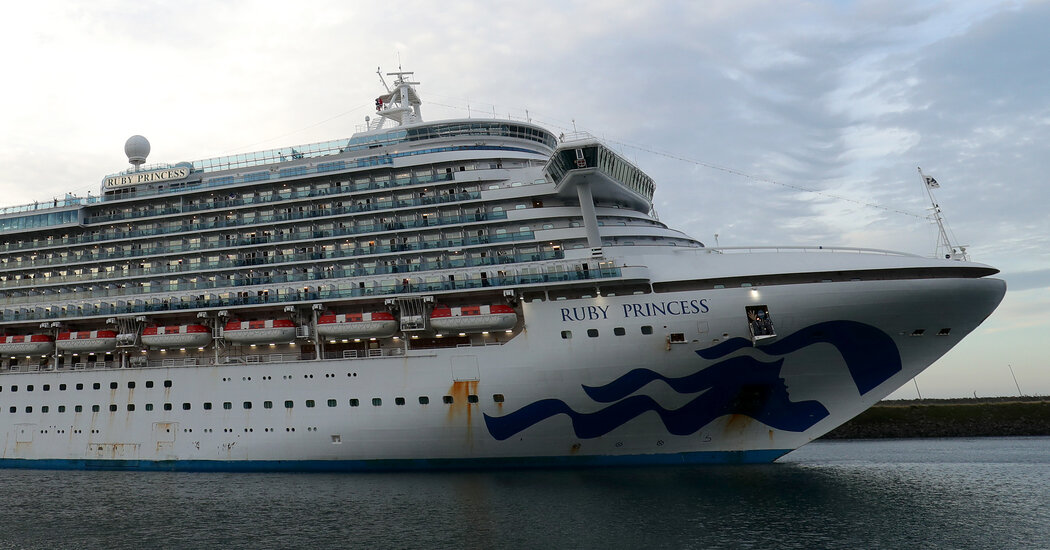The coronavirus was already devastating parts of the world, bringing illness and death, and the future was uncertain when Henry Karpik, a retired police officer from the Australian suburb of Figtree, and his wife of nearly 50 years, Susan Karpik, began their holiday cruise to New Zealand aboard the Ruby Princess.
It was March 8, 2020. About a week earlier, a passenger on another cruise ship, the Diamond Princess, had become the first Australian to die of Covid-19.
A few days after the Ruby Princess left Sydney, Australia, Mr. Karpik began to feel tired, weak and achy, court records show. By the time the ship returned to Sydney, on March 19, 2020, Ms. Karpik saw that her husband was shaking and barely able to walk or carry his luggage, according to court documents.
Mr. Karpik, who was 72 at the time, spent nearly two months in the hospital, was placed on a ventilator, put into an induced coma and, at one point, given only a few days to live, court records show. He later recovered.
Ms. Karpik, the lead plaintiff in a class-action lawsuit against the cruise company Carnival, which chartered the Ruby Princess, also contracted Covid-19, although her symptoms were milder.
On Wednesday, an Australian court found that Carnival and a subsidiary, Princess Cruise Lines, were negligent and had “breached their duty of care” in their handling of a coronavirus outbreak aboard the ship in the early days of the pandemic.
About 2,670 passengers and 1,146 crew members were aboard the Ruby Princess. About 660 people on board contracted coronavirus, and 28 died, according to court records.
Ms. Karpik, a retired nurse, had sought damages for “personal injuries and distress and disappointment” of more than 360,000 Australian dollars, or about $227,000.
But Justice Angus Stewart of the Federal Court of Australia found that Ms. Karpik’s Covid-19 infection gave rise to “very mild symptoms,” and did not result in long Covid. He awarded her 4,423 Australian dollars, plus interest, or about $2,790, for her out-of-pocket medical expenses.
“I have found that before the embarkation of passengers on the Ruby Princess for the cruise in question, the respondents knew or ought to have known about the heightened risk of coronavirus infection on the vessel, and its potentially lethal consequences, and that their procedures for screening passengers and crew members for the virus were unlikely to screen-out all infectious individuals,” Justice Stewart wrote.
Justice Stewart ruled…
Click Here to Read the Full Original Article at NYT > Travel…
